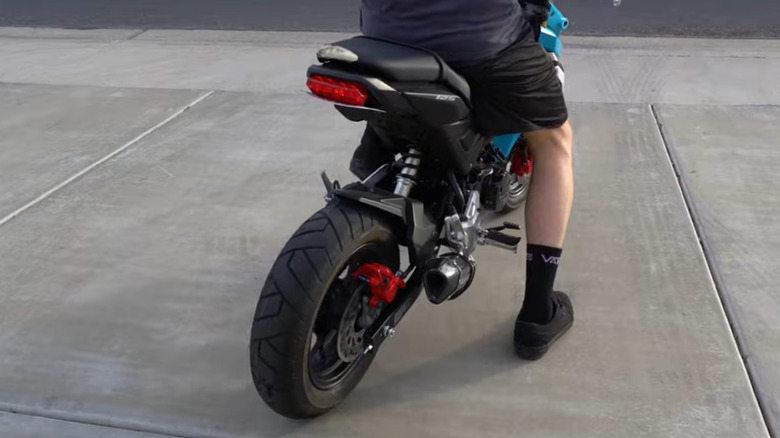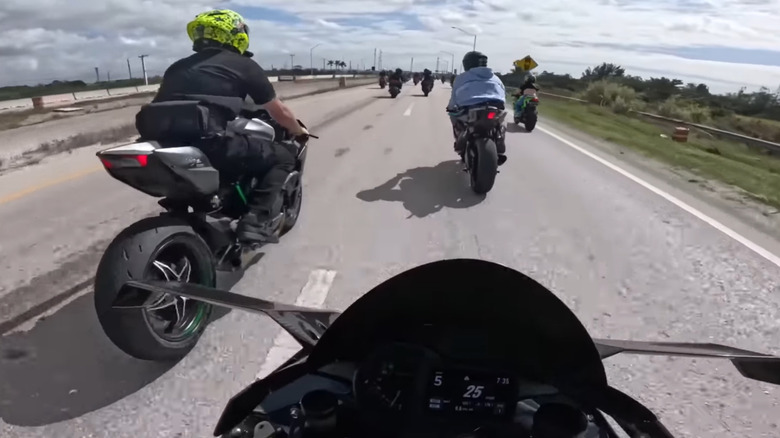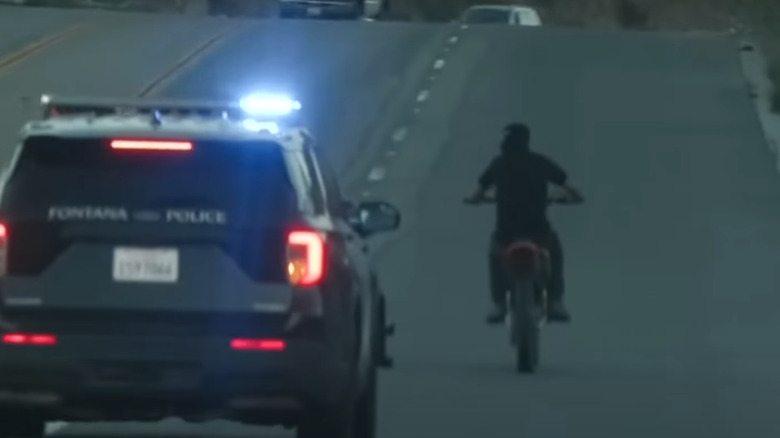Why Do Some Bikers Flip Their Motorcycle's License Plates?
You've likely come across a motorcycle rider with their license plate flipped while weaving through traffic on a busy highway. Or maybe you've seen it in a video on your social media feed and wondered — why would they hide their plates?
Regardless of where you are in the world, license plates are necessary. Think of it as your identity card or passport. These boxed identifiers provide authorities with unique visible identification for all vehicles (bikes or cars), helping link a specific motorcycle or car to the owner, enforce laws, track vehicle information, and aid police officers during investigations in case of crimes or an accident. With that in mind, driving any vehicle (motorcycle or car) without a license plate is illegal in all U.S. states and carries penalties (state laws vary on placement).
Since it's illegal to hide your bike plates all over the United States, it's pretty obvious why anyone would want to flip their license plates. They are trying to cover up something shady — like dodging cameras, tolls, or even the police. Some riders insist on doing it for privacy; they don't want their bikes photographed and their license plates posted online. Regardless of the excuse, it is important to note that you could get pulled over by a state trooper if spotted riding on public roads without a visible license plate.
Aesthetics or evading police?
There are several things that vehicle owners do that could be taken lightly and don't necessarily raise too many eyebrows, even with authorities, like having an extremely dark window tint or missing a front license plate. Depending on the state, you may be able to get away with these modifications, and they might not be considered illegal. However, purposely flipping your bike's license plate can be viewed as malicious, and nine times out of ten, it's done to evade law enforcement.
To begin with, a hidden license plate can prevent cameras from capturing a rider's details — helping them dodge tolls, avoid traffic fines, or even slip past police if they have outstanding warrants. Beyond that, in today's digital age, if you own a rare bike, chances are someone will snap a picture of it, whether in traffic or parked somewhere, and post it online. Not all riders are comfortable with their license plates being shared publicly, so they often flip their plates, especially at car and bike shows.
Other motorcyclist, particularly those with bikes that feature aftermarket tail tides, flip their license plates for aesthetic reasons. According to these riders, a tucked license plate looks cleaner and adds to its aggression.
Why flipping license plates is risky and illegal
In the U.S., concealing your plates on public roads is unlawful and could lead to penalties for driving without registration, which falls under administrative offenses or infractions. While you might not go to jail for missing a license plate, you could be fined, get your motorcycle impounded, lose points on your driver's license, or be subject to vehicle registration holds.
Hiding motorcycle plates to evade law enforcement is ineffective in the current age of social media, street cameras, and dashcams, which are now a necessity in cars. If the police are determined to identify a specific tagless bike or car, they can employ several tactics within their reach to apprehend the owner. While some riders hide their license plates for aesthetic or privacy reasons, this move actually attracts more scrutiny than it avoids. In some neighborhoods, riding a motorcycle without a license plate can raise suspicion among residents, who may file a complaint with local authorities.
In case you are involved in an accident with a motorcycle with a flipped license plate, prioritize safety and do not confront them, especially if they appear aggressive. Instead, gather as much information as possible and report to your local authority.


